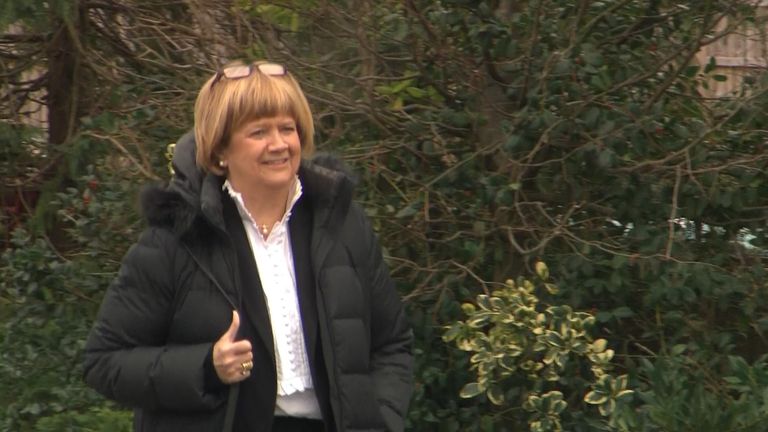During the pandemic, as disclosed in the COVID inquiry, Mark Drakeford regularly used WhatsApp to “seek clarification of the rules”.
Nia Gowman, representing Covid-19 Bereaved Families for Justice Cymru, revealed that WhatsApp messages indicated Drakeford, along with then Health Minister Vaughan Gething, frequently discussed policy announcements and sought rule clarifications.
- Dan Patlansky Announces New Album and Cardiff Return in April 2024
- Local homecare provider honours workforce at annual awards ceremony
- Grandmother’s health impacted by mold in Cardiff Council flat, forced to sleep on sofa for months
- Coroner Delivers Verdict on Tragic Drowning of 13-Year-Old Christopher Kapessa in River
- Community rallies support Danielles fight against terminal cancer
The inquiry, focusing on decisions made by the Welsh government during the pandemic, commenced in Cardiff and is scheduled for three weeks. Both Drakeford and Gething, alongside senior government officials, are expected to provide testimony. Some individuals who lost family members during the pandemic have expressed a desire for a separate Wales-specific COVID inquiry, akin to Scotland’s.
Baroness Heather Hallett, chair of the inquiry, emphasised its commitment to investigating significant issues concerning the people of Wales within a UK context. The inquiry also addressed the Welsh Labour’s decision not to hold its conference in Llandudno due to the emerging threat of the virus, contrasting with the allowance of a large gathering for a rugby match in Cardiff.
Additionally, discussions included the Welsh government’s request for the early commencement of the successor to the coronavirus job retention scheme, which was denied by the Treasury, prompting criticism from Drakeford regarding the Treasury’s role during the pandemic.
Sky News reported:
Some people who lost family members during the pandemic have told Sky News they want to see a separate Wales-specific COVID inquiry, as is the case in Scotland.
Responding to those calls, chair of the inquiry Baroness Heather Hallett said that “everyone knows [it] is not a decision for me”.
“I can promise, however, that the UK inquiry will do its utmost to investigate and analyse fully and fairly the most significant issues that concern the people of Wales,” she said.
The Welsh government has previously argued that decisions taken in Wales should be considered within a UK context.
Baroness Hallett said it was “probably appropriate that we begin these hearings in Wales in a week that includes St David’s Day but also includes the National Day of Reflection on Sunday, when we remember those who lost their lives during the pandemic”.
As the hearing got under way on Tuesday, a 20-minute impact film, with contributors speaking in both English and Welsh, was played.
Baroness Hallett described it as “extremely moving” and “it reminds us all why we are here”.

‘Adding confusion’
The inquiry was told that in March 2020, Welsh Labour decided not to hold its conference in Llandudno in-person, due to the emerging threat of the virus.
Lead counsel to the inquiry, Tom Poole KC, said Labour Senedd member, Lee Waters, said in a WhatsApp message: “I do think that it’s an odd signal to send that we’re cancelling conference, but allowing 70,000 to gather in Cardiff on Saturday”.
The message was in reference to the Six Nations match between Wales and Scotland due to be held in Principality Stadium on 14 March 2020.
It was called off by the Welsh Rugby Union on 13 March, but not before 20,000 Scottish rugby fans had travelled to the Welsh capital, the inquiry heard.
On 24 April, then Wales secretary, Simon Hart, wrote to the Welsh government saying its framework for recovery – which outlined how restrictions would be eased – “did not mention the UK government once”.
Mr Hart stated that “unless the evidence being relied on by the Welsh government to diverge from a UK-wide plan is explained, then the Welsh government will be guilty of adding confusion to an already challenging period of recovery”.
‘Treasury for England’
The successor to the coronavirus job retention scheme was due to start on 1 November 2020.
The Welsh government asked the chancellor for the plan to start earlier in Wales after it announced a firebreak lockdown in the country.
Mr Drakeford, in written evidence to the inquiry, described the rejection of that request as “one of the most misguided decisions of the whole pandemic”.
Mr Drakeford said the impact of that decision was that the Treasury was “in effect acting as a Treasury for England, not a Treasury for the UK”.
Mr Poole told the inquiry that this is denied by the UK government, including by the Prime Minister Rishi Sunak, who was chancellor at the time.
The inquiry continues.